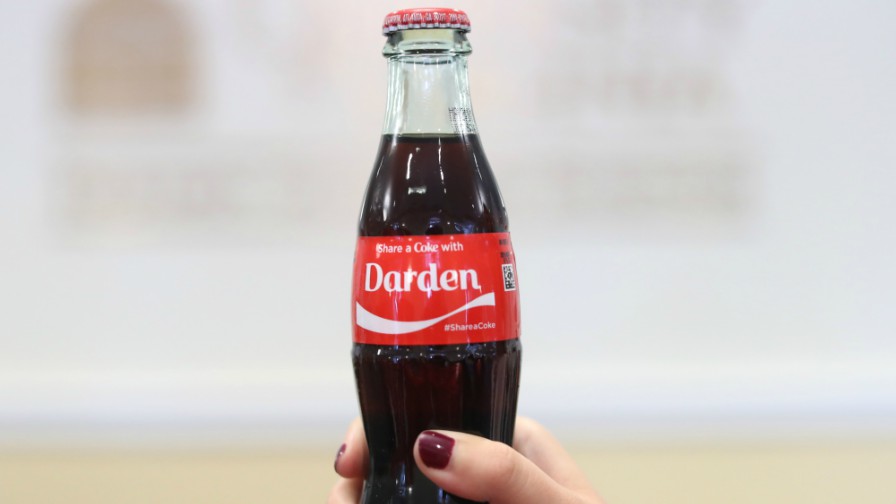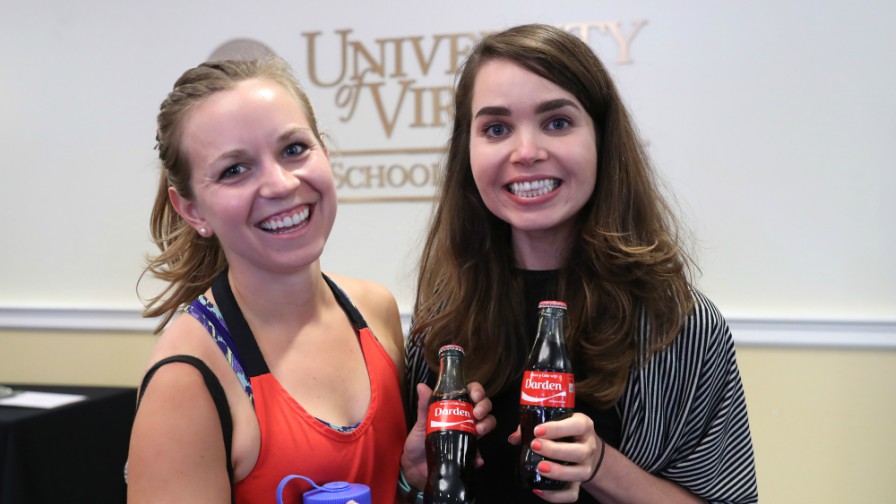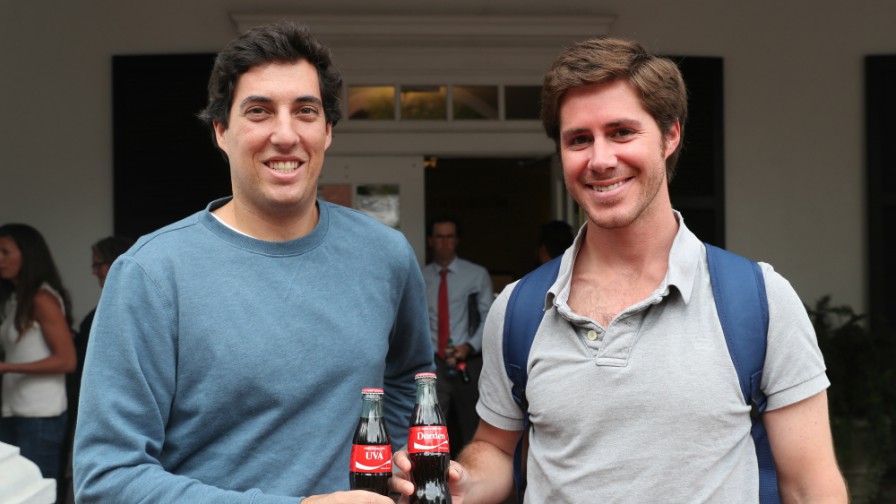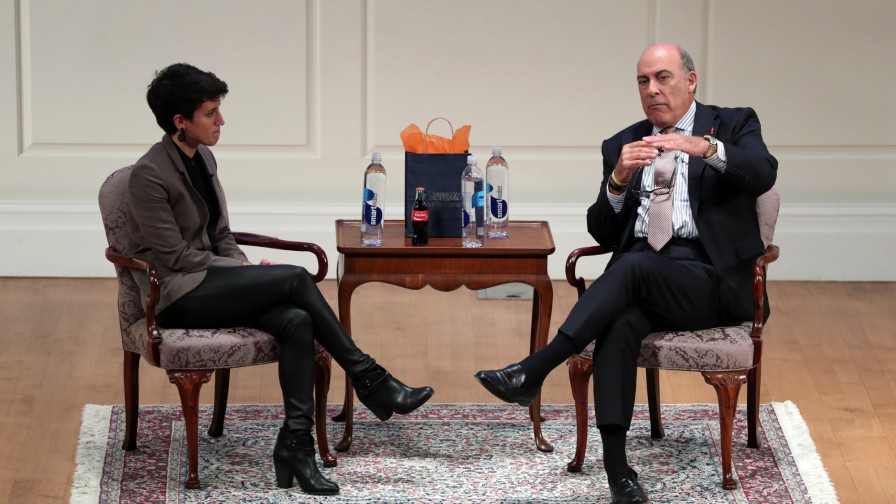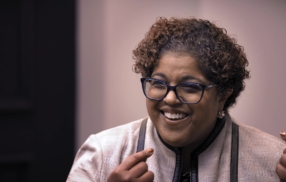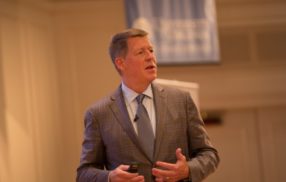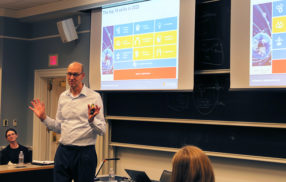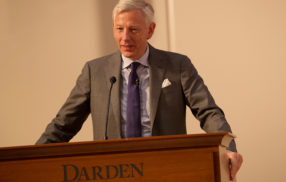Coca-Cola’s Muhtar Kent Shares 4 Keys to Successful Leadership
By Dave Hendrick
The flagship product of The Coca-Cola Co. may be one of the best known brands on the planet, but even the most familiar and ubiquitous consumer products are grappling with a rapidly changing business environment.
Speaking at the University of Virginia Darden School of Business at a Leadership Speaker Series event, Coca-Cola Chairman and former CEO Muhtar Kent said the company was keenly aware that it operated in an unprecedented landscape, in which a series of megatrends is rapidly reshaping how it does business.
Kent — who began working at Coca-Cola on delivery trucks in the late 1970s and stepped down as CEO earlier this year — said an aging global population, the rise of the youth consumer, shifting global economic centers and resource scarcity were all playing key roles in shaping the future of a company that sells more than 3,500 products under more than 500 brands.
The trends come as consumers, particularly youth consumers, are more empowered than ever and have distinct expectations for the products they buy and the companies behind them.
“It’s no good anymore just to make a good-tasting product. You have to make a positive impact,” Kent said. “You can’t have a growing and thriving business unless your communities are also strong and thriving.”
Kent discussed a set of initiatives Coca-Cola has undertaken to bolster its positive impact in society, efforts that fall under the shorthand of “women, water and well-being.”
On the women front, Kent said the efforts sprang from the “huge disconnect between purchasers and senior leadership.” The company implemented a concerted effort to hire, mentor and promote women so that its leadership more closely resembled the demographics of those buying its products. The percentage of women in the company’s senior leadership ranks are now in the “high-30s,” he said. The company has also made an effort to support more female-owned retailers.
“When you empower women, communities get stronger and when communities get stronger our business gets stronger,” Kent said.
The former CEO further described the company’s move from being one of the world’s largest users of water toward being water neutral and now water positive.
The well-being front includes the company’s efforts to be “part of the solution to obesity,” Kent said. He explained that Coca-Cola was working to add more small bottles and cans, increase availability of low- and no-calorie drinks and create more beverages with less added sugar.
In addition to meeting consumer expectations for brands in the 21st century, Kent suggested the efforts made good business sense, as well, and said he had “never been more optimistic about the future of the company.”
Kent also shared a series of leadership lessons with the audience, including:
- Get to know the business from the ground up. Kent said future business leaders should determine what their company or product “point of impact” is, and never lose sight of it.
- Have passion for what you do. Kent encouraged students to take an entrepreneurial mindset to their work, to take risks and not fear mistakes.
- Develop human relationships. A meal eaten alone is a wasted opportunity to create a relationship, Kent said.
- Cultivate diversity. If you’re in a leadership position, there is both a moral and practical imperative to do so, Kent said, adding that businesses want to hire people who are “as comfortable living and operating in Nairobi as New York.”
Before concluding, Kent noted his fondness for both Charlottesville and Darden, lauding his former colleague John Farrell (MBA ’80), as “one of the finest colleagues I have ever had.” Farrell, who worked as vice president and chief strategy officer at Coca-Cola Co., died in 2013.
Kent also recalled speaking at the annual naturalization ceremony at Monticello on 4 July 2011. He called the experience “one of the most uplifting moments of my life.”
The University of Virginia Darden School of Business prepares responsible global leaders through unparalleled transformational learning experiences. Darden’s graduate degree programs (MBA, MSBA and Ph.D.) and Executive Education & Lifelong Learning programs offered by the Darden School Foundation set the stage for a lifetime of career advancement and impact. Darden’s top-ranked faculty, renowned for teaching excellence, inspires and shapes modern business leadership worldwide through research, thought leadership and business publishing. Darden has Grounds in Charlottesville, Virginia, and the Washington, D.C., area and a global community that includes 18,000 alumni in 90 countries. Darden was established in 1955 at the University of Virginia, a top public university founded by Thomas Jefferson in 1819 in Charlottesville, Virginia.
Press Contact
Molly Mitchell
Senior Associate Director, Editorial and Media Relations
Darden School of Business
University of Virginia
MitchellM@darden.virginia.edu


